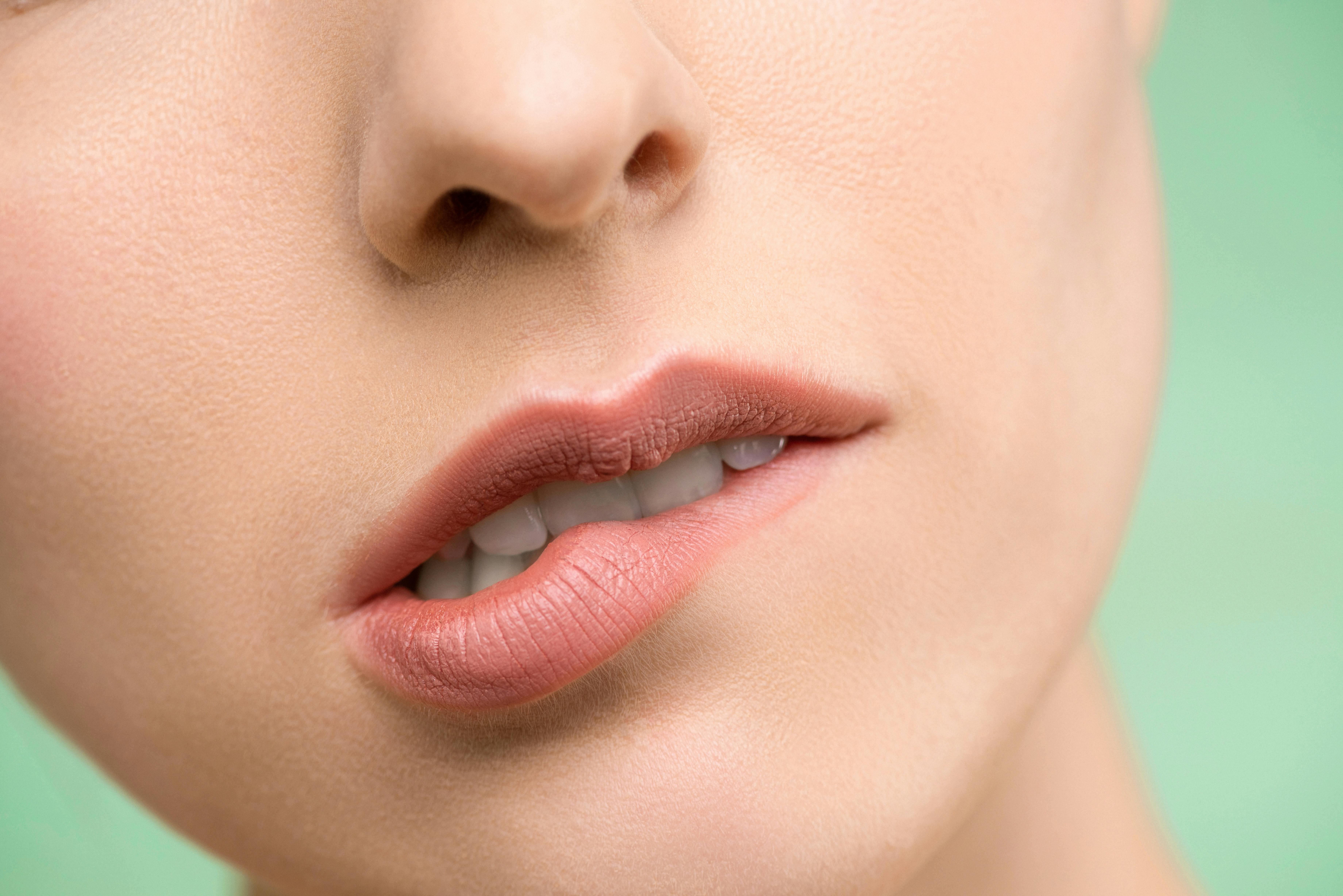Biting your nails is a common habit that many of us have been guilty of at some point in our lives. But the question remains, does biting nails damage teeth? This article will explore the potential risks associated with nail-biting and provide advice on how to break this habit.Nail-biting can have a negative impact on teeth. It can cause teeth to become chipped, worn down, or misaligned. It can also increase the risk of cavities and gum disease, as well as damage to the sensitive tissues of the mouth. Additionally, nail-biting may cause jaw pain or tension and even reduce a person’s self-esteem due to the appearance of their teeth.
Can nail-biting cause tooth decay?
Nail-biting can be a sign of stress and anxiety and can be a difficult habit to break. However, it can also lead to dental problems such as tooth decay. When someone bites their nails, they are exposing their teeth to bacteria that can lead to cavities and other oral health issues. The more often someone bites their nails, the greater the risk of developing tooth decay. Biting the nails also puts pressure on the teeth which can lead to fractures and chips.
Bacteria found under the nails can cause inflammation of the gums, leading to gum disease. This can cause tooth loss if left untreated. Nail-biting can also affect the alignment of teeth by wearing down enamel over time.
It is important to take steps to break this habit in order to protect your teeth and gums from damage. It is also important to practice good oral hygiene such as brushing twice a day, flossing regularly, and attending regular dental checkups so any issues related to nail-biting can be identified and addressed early on.
What is Nail-Biting?
Nail-biting, also known as onychophagia, is a nervous habit that involves biting off the edges of the fingernails or toenails. It is a common habit among children and adolescents, but it can persist into adulthood. Nail-biting can be seen as a form of self-soothing behavior that people use to cope with stress, anxiety, and boredom.
Causes of Nail Biting
The exact cause of nail-biting is not known, but it may be related to psychological factors such as anxiety or boredom. Other environmental factors such as peer pressure or parental influence can also contribute to the development of this habit. In some cases, nail biting may be linked to underlying mental health conditions such as obsessive compulsive disorder or depression.
Effects of Nail Biting
Nail-biting can lead to several physical and psychological effects. Physically, it can cause damage to the nails and cuticles, leading to infection and painful cuts on the fingers or toes. It may also lead to bad breath and an unkempt appearance due to uneven nail lengths. Psychologically, nail-biting may lead to feelings of guilt and shame due to its socially unacceptable nature.
Risks Associated with Nail Biting
There are several risks associated with nail-biting including infections from bacteria or fungi present under the nails; damage to the teeth due to excessive gnawing; increased risk of developing skin disorders such as warts; and spread of viruses like cold sores if fingers are placed in one’s mouth after touching an infected area.
Damage from Nail-Biting
Nail-biting can cause damage to the cuticles, skin around the nails, and even the teeth. Furthermore, it can cause infection due to contact with bacteria from the mouth and nails. In severe cases, nail-biting can lead to changes in nail shape and texture which may require medical intervention.
Preventing Damage
There are a few ways to prevent damage from nail-biting such as wearing gloves, using bitter tasting products on the nails, or keeping nails trimmed short. Additionally, it is important to manage stress and anxiety as nail-biting is often a result of these factors. Practicing relaxation techniques such as meditation or deep breathing can help alleviate stress and reduce the urge to bite nails. Finally, talking with a therapist or counselor can be beneficial in learning coping strategies for managing stress and anxiety.
Does the type of nails affect tooth damage caused by nail-biting?
Nail-biting is a common habit that many people have practiced since childhood. It is often a way to relieve stress and anxiety, but it can also cause damage to the teeth if done excessively. While some people may not be aware of it, the type of nails can play a role in how much damage nail-biting can cause.
Different types of nails require different levels of force to be bitten off, and this can make a difference in how much damage is done to the teeth. Harder nails, such as acrylic or artificial nails, require more pressure to be bitten off, which can lead to more wear and tear on the teeth. Softer nails such as natural nails may not require as much pressure and may therefore cause less damage.
Another factor that can affect how much damage nail-biting does to the teeth is the size of the nail being bitten. Smaller nails are easier to bite off than larger ones and may therefore cause less damage over time. Additionally, sharp edges of long or thick nails may scrape against the teeth when being bitten off, which could potentially lead to more serious dental issues.
In conclusion, different types of nails can affect how much damage nail-biting causes to the teeth. Generally speaking, harder or thicker nails will require more force and may lead to greater wear and tear on the teeth over time. On the other hand, softer or smaller nails may not cause as much harm because they are easier to bite off with less force applied.

Dental Problems Caused by Nail-Biting
Nail-biting is a common habit, but it can have a negative impact on your oral health. Biting your nails can cause tooth chipping and fracturing, damage to the enamel of your teeth, and jaw joint disorders. It can also cause infection and gum damage due to the bacteria that is transferred from your fingers to your mouth. Additionally, nail-biting can cause problems with the alignment of your teeth, leading to malocclusion or an improper bite.
In some cases, nail-biting can lead to speech impediments or difficulty in eating due to misalignment of the teeth. Grinding and clenching of the teeth caused by nail-biting can also result in headaches and facial pain. Finally, nail-biting may even cause dental trauma if you accidentally bite down too hard on a piece of fingernail or skin.
Overall, nail-biting may seem like a harmless habit but it can have serious dental consequences if not addressed promptly. If you are a habitual nail biter, it is important to speak with your dentist about ways to break this habit and protect your oral health.
Signs of Tooth Damage Due To Nail-Biting
Nail-biting can have an adverse effect on the teeth, leading to a number of problems if left unchecked. The most common signs of tooth damage due to nail-biting are chipped or cracked teeth, broken fillings, and worn down enamel. Chipping or cracking of a tooth can occur from chewing on hard nails, which can lead to pain and sensitivity. Broken fillings may also occur due to the pressure put on the tooth when biting the nail. Over time, nail-biting may also cause the enamel on the teeth to wear down, leading to further sensitivity and an increased risk for cavities. Other signs of tooth damage from nail-biting include gum recession and jaw pain. If you notice any of these signs in your mouth, it is best to contact your dentist right away for an evaluation and treatment plan.
It is also important to take preventive measures against tooth damage from nail-biting. This includes avoiding biting at all costs and seeking therapy if necessary to break the habit. Additionally, maintaining good oral hygiene practices such as brushing twice daily with fluoride toothpaste and flossing regularly will help protect against any potential harm caused by nail-biting. Finally, regular visits to the dentist are essential for proper monitoring of any dental issues that may arise due to nail-biting.
Biting Nails and Gum Health
Biting your nails can have a negative effect on your gum health. When you bite your nails, you are introducing bacteria and other germs to your mouth that can cause inflammation and infection in your gums. The bacteria found in your fingernails can be transferred to the gums when you bite them, leading to an increase in plaque buildup, gum irritation, and even periodontal disease. Additionally, biting your nails can cause trauma to the gums by creating cuts or scrapes in the tissue, which may lead to infection.
In order to maintain healthy gums, it is important to avoid biting your nails. If you already have a habit of biting your nails, it is recommended that you take steps to break it by replacing the behavior with something else or using a bitter-tasting nail polish as a deterrent. Additionally, it is important to practice good oral hygiene by brushing and flossing regularly and visiting the dentist for regular checkups. This will help keep any bacteria or germs from causing inflammation or infection in the gums.

Conclusion
In conclusion, biting nails can damage teeth in several ways. The physical action of biting down on a nail can wear down the enamel of teeth and create chips and cracks. Nail-biting also introduces bacteria into the mouth that can lead to cavities and gum disease. Additionally, nail-biting can cause the gums to recede, leading to sensitivity and an increased risk of infection.
It is important for adults and children alike to be aware of the risks involved with nail-biting, and develop healthy habits to break this habit. Taking steps such as wearing gloves, keeping nails short, using bitter tasting products, or speaking with a mental health professional are all viable options for those looking to kick their nail-biting habit.
Overall, it is clear that biting one’s nails has serious implications for oral health. It is important that all individuals be aware of the consequences of nail-biting so that they can take steps to protect their teeth and gums from damage.
